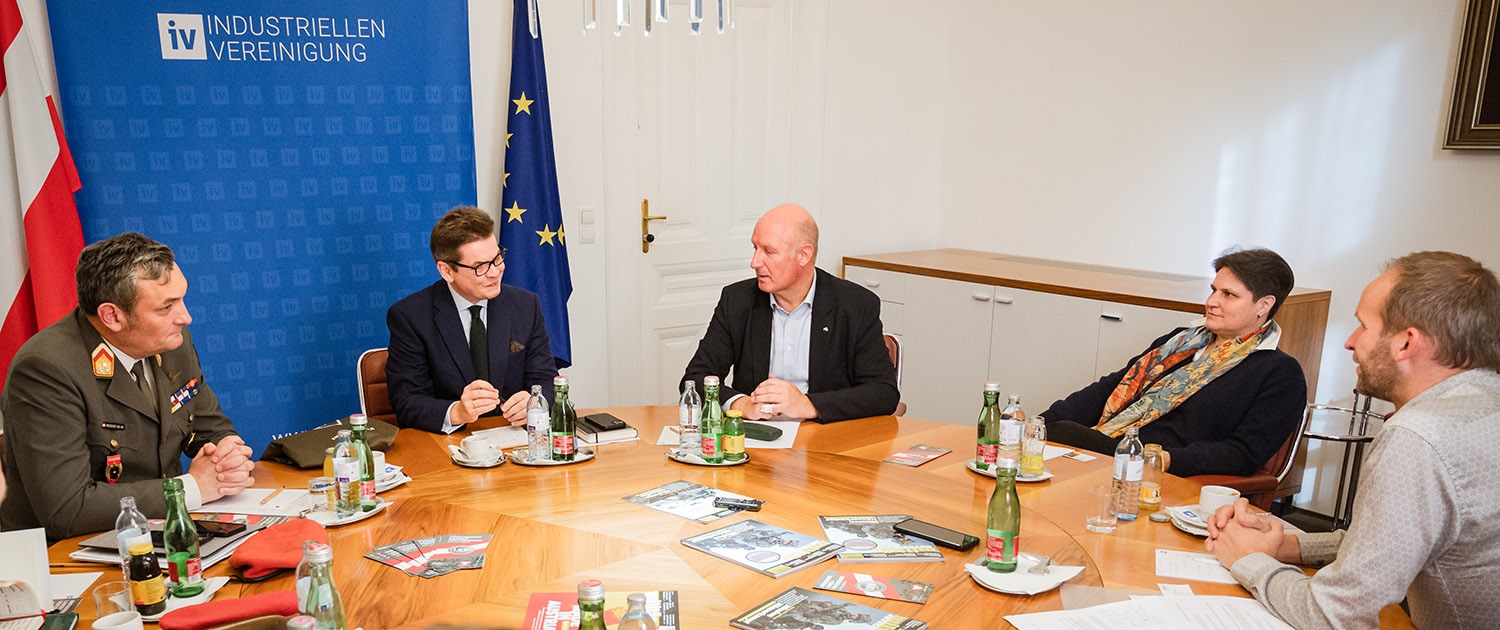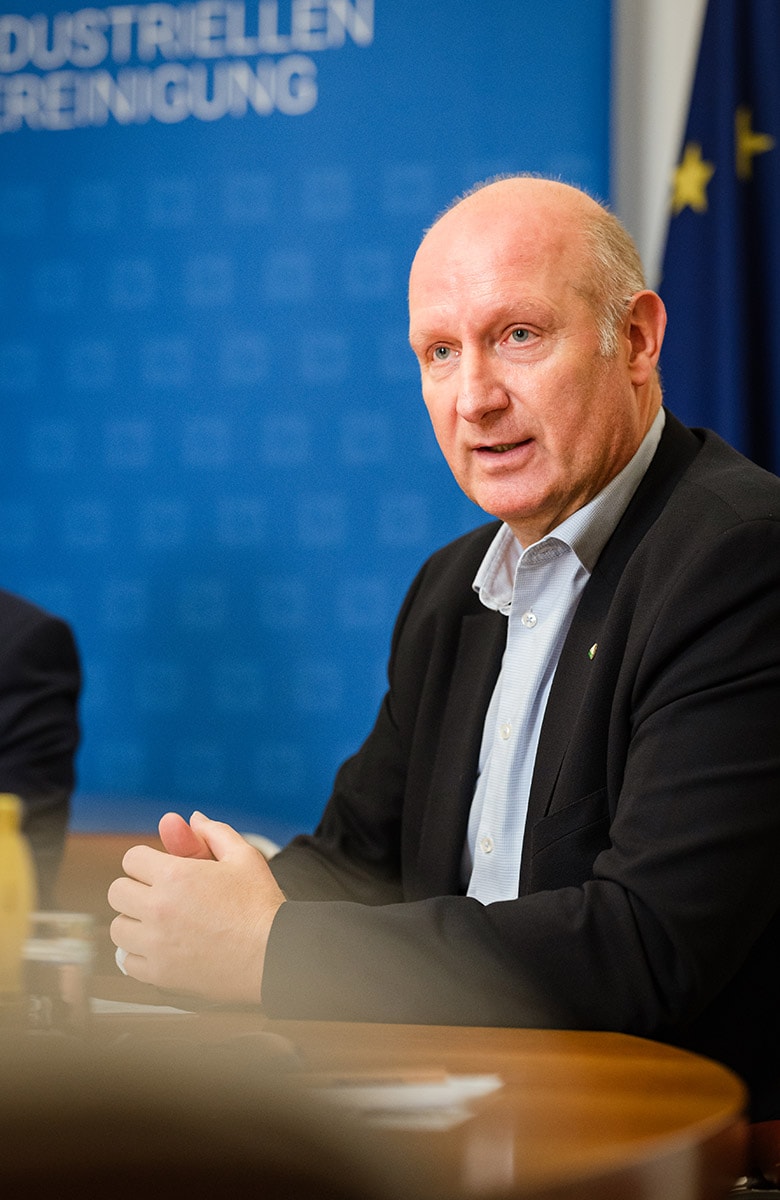Many units of the Armed Forces maintain partnerships with companies, local authorities and educational institutions. What are the benefits? How are these partnerships put into practice? And what does all this have to do with “comprehensive national defense”? Militär Aktuell editor-in-chief Jürgen Zacharias asked Colonel Stefan Kirchebner, Christoph Neumayer, Karl Hofbauer and Heidi Marie Steinwender for an interview.
Colonel, please explain to us at the beginning: Why do the Armed Forces and the Ministry of Defense rely on more than 100 partnerships?
Colonel Stefan Kirchebner: For decades, partnerships have been a crucial piece of the puzzle when it comes to “Comprehensive National Defence”. In a state, as we all know, everything is connected to everything else and the most diverse institutions and organizations have the most diverse tasks. The task of the Austrian Armed Forces is “military national defense”. But to prevent this from becoming an end in itself, it naturally needs bridges to society – in all areas. Federal Minister Klaudia Tanner always emphasizes the importance of “comprehensive national defence” for holistic security to strengthen the resilience of our state.
“Partnerships are a great opportunity to bring the armed forces back into the center of society.”
Christoph Neumayer, Industriellenvereinigung

And the partnerships are such bridges?
Kirchebner: Exactly. First of all, the partnerships allow us to exchange ideas and get to know each other, often on an informal level. Everyone can learn something from everyone – and that is precisely why our aim is to cover as many areas as possible with as many high-quality partnerships as possible: companies that ensure our supply and secure social peace with their jobs. Educational institutions that support “spiritual national defense” with their work and associations and communities that have a direct impact on society. We think locally, regionally and throughout Austria. Only if we all pull together and pool our strengths will we be able to create greater awareness of and strengthen “Comprehensive National Defense”. The common goal must be the development of a resilient state. Christoph Neumayer: That is a very important point. The Federation of Austrian Industries has maintained a partnership with the Guard for 44 years now, which is a very clear commitment to “comprehensive national defense”. The Austrian state has many foundations and one of the most important is a functioning and well-equipped national defense. However, this also means that we, as a business location, must help to secure the prosperity we have created and, as mentioned by the colonel, make the state resilient – and in doing so, we must also think beyond borders.

In what way?
Neumayer: The role that the armed forces play at home is a very important one. However, the role it plays abroad is almost as important, and I am thinking in particular of the Western Balkans, where the armed forces make a decisive contribution to peacekeeping. What is often forgotten: Austria is one of the top investors in this region. Karl Hofbauer: “Comprehensive national defense” is ultimately the integration of a wide range of stakeholders and capabilities into the responsibility of society in order to jointly create more security. And in doing so, it is often of decisive importance to “only” exchange information and create awareness of how processes work in the most diverse areas. For the armed forces, it is interesting to see how structures are set up in the private sector and how decisions are made there. Conversely, far too little is known about how professionally things work in the armed forces. There is a lot to learn from each other.
“If we all pull together, we will create more awareness for ‘Comprehensive National Defense’.”
Oberst Stefan Kirchebner, Bundesheer

How does that work in detail? How are the partnerships lived in everyday life?
Heidi Marie Steinwender: It varies greatly and always depends on the framework conditions. To give you an example: We have been partnered with the Army Clothing Institute since 2007 and, as part of this partnership, our students were involved in the development of the army’s new camouflage patterns and combat suits, among other things. We have been working closely with Directorate 6 ICT & Cyber since 2013. Since then, employees from the Directorate have undergone further training with us, while others now teach with us on a part-time basis. The Directorate helps us with diploma projects and summer internships, it has used its expertise to support the development of our school location concept for a blackout case, we are working together on software projects, our developers are currently developing a cyber awareness game together with the Directorate’s public relations department, and forms and radio services are also currently being worked on. Interest in the basic cyber military service has increased significantly at the school site.
“We have many mutual benefits from our partnership with Directorate 6 ICT & Cyber.”
Heidi Marie Steinwender, HTL Spengergasse
So the partnership is very much alive?
Steinwender: Absolutely. We also have a wide range of mutual benefits, which is why we want to continue to promote the partnership. Hofbauer: We have maintained a partnership with the NBC Defense Center for 30 years, which was not always as intensive in terms of content in the past. However, developments in recent years have shown very clearly the value of our partnership – and the added value it can have in an emergency. During Covid, for example, the Austrian Armed Forces supported us very quickly and highly professionally with tests, enabling us to continue operations. In the meantime, we have also developed joint crisis scenarios and emergency plans, for example in the event of a blackout, and conversely we can also provide important input at many levels. Neumayer: Over the past three to four years, the basic understanding that security is not a matter of course has grown. As a result, the expertise of the Austrian Armed Forces has gained massively in value and that is a good thing. We have to understand that we are part of a big geopolitical game that is about resilience and dependencies, but also about technological and innovative capabilities. It’s about key industries such as our semiconductor production and ultimately about location security – and the armed forces are a decisive factor in this.

Hofbauer: Until recently, the armed forces did not have a particularly high status in many areas of society. That has now changed. Investments are being made in equipment and now it is also important to make the jobs in the army so interesting that people enjoy working there, and they may also be able to bring the know-how they have learned there into the private sector later on. Neumayer: To achieve this, however, we need to communicate more clearly which skills can be acquired in the armed forces and then used in civilian life. There are many examples internationally where this works very well. Where it is completely normal for career paths to lead from the army to the private sector and possibly back again. Where skills are retained by the army via the militia even after a move to the private sector. An incredible amount would be possible in Austria and I believe that this has been recognized and the first steps have already been taken in the right direction. Kirchebner: We see this potential and want to leverage it. Particularly with regard to the militia, we have recently been able to initiate and implement many improvements on the initiative of our militia officer Major General Erwin Hameseder. Steinwender: We should also not underestimate the contribution that partnerships can make when it comes to breaking down inhibitions and fears of contact with the military. We were recently able to present diploma projects with Directorate 6 at the Court on Schools Day, and the pupils were thrilled. They were able to gain an insight into the work and processes of the directorate in many conversations with employees. The Austrian Armed Forces are a magnet for the public at the annual company information day at Spengergasse.
“Developments in recent years have shown what added value partnerships can have.”
Karl Hofbauer, Raiffeisen Ware Austria AG
What does the intensity of a partnership depend on?
Hofbauer: Many things, but the commitment of the partners involved and the people involved who are prepared to fill the partnership with content is crucial. Kirchebner: It is these people who ultimately define how big and strong the bridge described at the beginning is and how much it is used. Projects that go beyond pure intellectual exchange are specified on a case-by-case basis and put on the legally necessary footing. The issue of voluntariness is very important here. Neumayer: It is also important that partnerships are a matter for the boss. Only if they are supported by the management will they also work at other levels, with employees.

How can partnerships be made even closer in future and filled with even more life?
Steinwender: We need to focus even more on the necessity and meaningfulness of partnerships and combine them with positive experiences. In principle, the conditions for this are ideal: for example, I don’t know of any other company with such a strong, positively perceived corporate identity. Kirchebner: This will require many small steps, but we have already initiated the decisive process. On the initiative of Defense Minister Klaudia Tanner, the Austrian Armed Forces are now undergoing a change in thinking at all levels, which we call “Mission Forward”. This is not only about visions, investments and new equipment, but also about the spirit within the Armed Forces and within the militia, and ultimately also about the partnerships that help us to build understanding for the Armed Forces and to position ourselves even more broadly. Neumayer: Ideally, the partnerships are platforms for personal experience and therefore also for image transfer. In this respect, they are also a great opportunity to bring the Armed Forces back into the center of society. However, this opportunity must also be used and the partnerships are certainly a good shoehorn for this.
Here for further army news.










